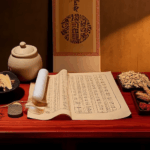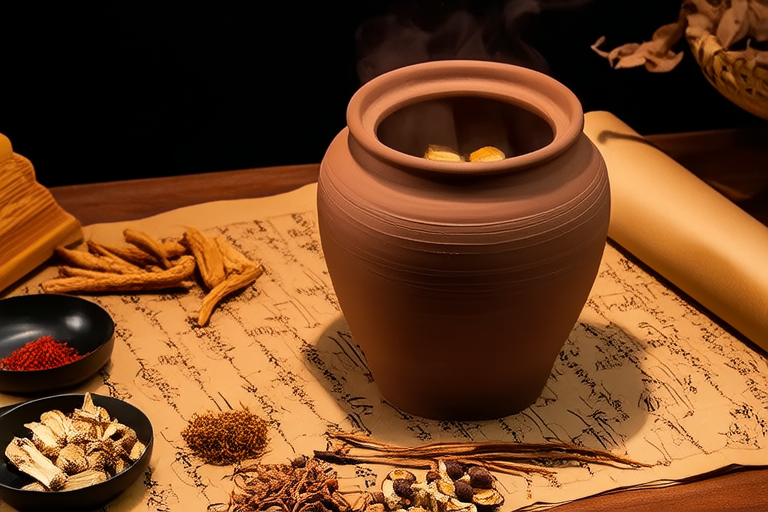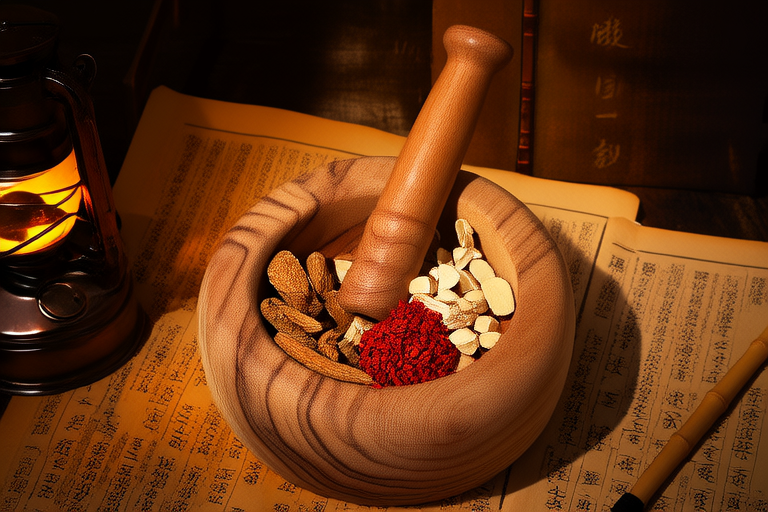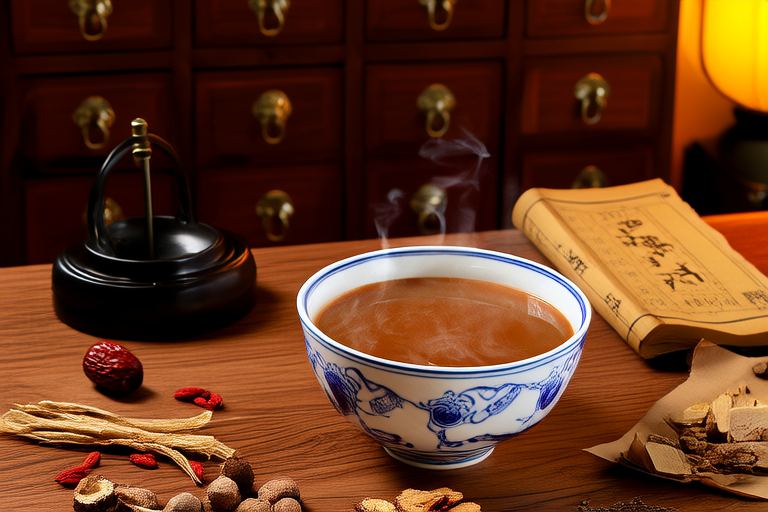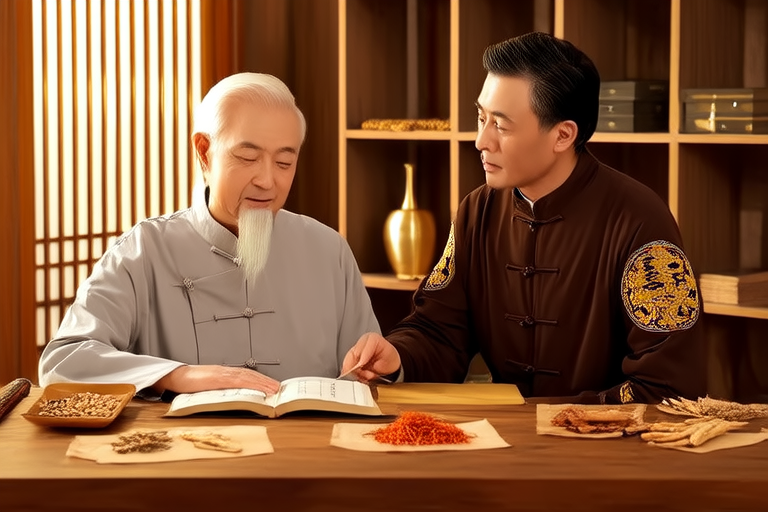Exploring the Way of Nurturing Health: Traditional Chinese Medicine’s Core Concepts and Wisdom
Introduction
Traditional Chinese Medicine (TCM) has a long history that spans thousands of years. It is based on the principles of Yin and Yang, the Five Elements, and the theory of Qi. TCM aims to maintain health by balancing the body, mind, and spirit. The core concept of TCM is to promote the flow of Qi, which is considered the vital energy that flows through the body. When Qi is blocked or imbalanced, it can lead to illness. In this article, we will explore the core concepts of TCM, including the theory of Yin and Yang, the importance of meridians and acupoints, as well as various methods of nurturing health, such as dietary therapy, exercise, and emotional regulation. We will also discuss how these ancient practices align with modern health concepts.
The Core Concepts of Traditional Chinese Medicine
The Theory of Yin and Yang
The theory of Yin and Yang is one of the most fundamental concepts in TCM. Yin and Yang represent two opposing but complementary forces that are present in everything in the universe. Yin represents darkness, coldness, and passivity, while Yang represents light, heat, and activity. In the human body, Yin and Yang must be balanced for optimal health. For example, too much Yin can lead to lethargy and depression, while too much Yang can cause hyperactivity and inflammation. TCM practitioners use herbs, acupuncture, and other therapies to balance Yin and Yang in the body.
The Five Elements
The Five Elements theory is another important concept in TCM. The five elements are wood, fire, earth, metal, and water. Each element is associated with different organs, emotions, and seasons. For example, wood is associated with the liver and the emotion of anger, fire is associated with the heart and the emotion of joy, earth is associated with the spleen and the emotion of worry, metal is associated with the lungs and the emotion of sadness, and water is associated with the kidneys and the emotion of fear. TCM practitioners use the Five Elements theory to diagnose and treat illnesses by identifying imbalances in the elements.
The Importance of Meridians and Acupoints
In TCM, the body is seen as a network of channels called meridians that carry Qi throughout the body. There are twelve main meridians, each corresponding to a specific organ or system in the body. Along these meridians are acupoints, which are specific points where Qi can be accessed and manipulated. Acupuncture, a popular TCM therapy, involves inserting thin needles into acupoints to stimulate Qi flow and restore balance in the body. TCM practitioners also use acupressure, moxibustion, and cupping to stimulate acupoints and promote healing.
Nurturing Health Methods in Traditional Chinese Medicine
Dietary Therapy
Dietary therapy is an essential part of TCM. According to TCM, food is not only a source of nutrition but also a way to balance Yin and Yang and harmonize the Five Elements. TCM practitioners recommend eating a variety of foods from all five elements to maintain balance in the body. For example, eating more bitter foods like leafy greens can help clear heat from the body, while eating more sweet foods like fruits and grains can nourish the spleen and strengthen digestion. TCM also emphasizes the importance of eating according to the season and climate to maintain balance in the body. For example, eating cooling foods like cucumber and watermelon during hot summer months can help prevent heat-related illnesses.
Exercise and Movement
Exercise and movement are also important for maintaining health in TCM. TCM practitioners recommend practicing Tai Chi, Qigong, and other forms of gentle exercise to promote Qi flow and improve circulation. These exercises focus on slow, deliberate movements that emphasize breathing and relaxation. They are designed to improve flexibility, strength, and balance, as well as reduce stress and anxiety. TCM practitioners also recommend regular physical activity, such as walking, swimming, or cycling, to promote overall health and well-being.
Emotional Regulation
Emotional regulation is another key aspect of TCM. According to TCM, emotions can affect the flow of Qi in the body and lead to imbalances if left unchecked. TCM practitioners recommend practicing mindfulness, meditation, and other techniques to regulate emotions and maintain balance in the body. They also recommend seeking support from friends, family, or a therapist when needed to address emotional issues. TCM practitioners believe that addressing emotional issues can have a positive impact on physical health and well-being.
The Alignment of Traditional Chinese Medicine with Modern Health Concepts
Despite its ancient origins, TCM aligns well with many modern health concepts. For example, TCM emphasizes the importance of holistic care, which is now widely recognized as an essential component of healthcare. TCM practitioners take into account the whole person, including their physical, mental, and emotional health, when diagnosing and treating illnesses. This approach is in line with the growing trend toward personalized medicine, which seeks to tailor treatment plans to individual patients based on their unique needs and circumstances.
Another modern health concept that aligns with TCM is the importance of prevention. TCM practitioners focus on preventing illness by promoting healthy habits and lifestyle choices. They recommend regular check-ups, healthy eating, and exercise to maintain balance in the body and prevent illness. This approach is in line with the growing emphasis on preventive care in modern healthcare systems, which seeks to reduce the incidence of chronic diseases and improve overall public health.
Finally, TCM also aligns with the growing interest in integrative medicine, which seeks to combine the best of both conventional and alternative therapies to provide comprehensive care. TCM practitioners often work alongside Western medical professionals to provide integrated care that addresses both the root causes of illness and the symptoms. This approach is gaining popularity as more people seek out holistic and personalized care options.
Conclusion
Traditional Chinese Medicine offers a wealth of knowledge and wisdom for nurturing health and well-being. Its core concepts, including the theory of Yin and Yang, the Five Elements, and the importance of meridians and acupoints, provide a framework for understanding the body and promoting balance. Its methods of nurturing health, including dietary therapy, exercise, and emotional regulation, offer practical tools for maintaining health and preventing illness. While TCM has ancient roots, its principles and practices align well with many modern health concepts, making it a valuable resource for promoting holistic care, prevention, and integrative medicine. As more people seek out natural and personalized approaches to healthcare, TCM is likely to play an increasingly important role in promoting health and well-being.



